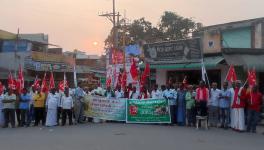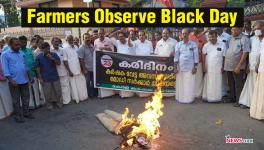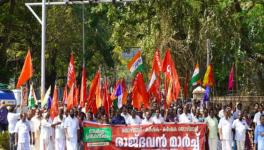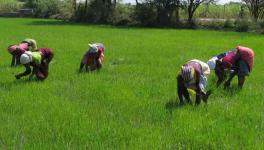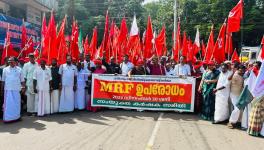‘Dairy Farming Will Be Biggest Casualty of Farm Laws’
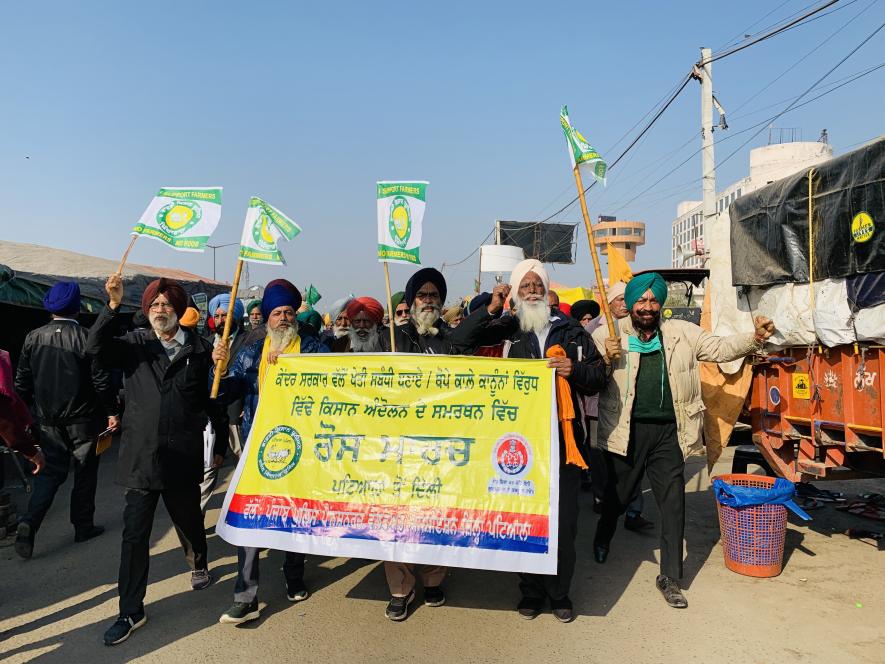
Gurdarshan Singh follows the Punjabi daily newspapers ‘Ajit’ and ‘Punjabi Tribune’ closely to observe how vernacular media is covering the farmers’ protest at the borders of national capital against the recently enacted three farm laws and proposed Electricity (Amendment) Bill 2020.
After spending a fortnight at the protest site, Singh is planning to leave for his home in Patiala, ahead of the upcoming talks between the Centre and farmers’ unions. “As I leave for my village, more people will join the struggle. There is a fluidity in the struggle which keeps it moving. That’s how it persisted for a month without any hassle,” he said.
Jagir Dhillon, sitting beside Singh, commented, “They turned this (repeal of the farm laws) into a prestige issue, we did not. Now, they are coming up with excuses talking about other laws for which different groups will exert pressure to repeal. I do not think they should have made it one. Everybody commits mistake. However, one should at least be ready to accept it.”
Dhillon and Singh both conceded that the laws will not only decimate agriculture but other associated enterprises too. Dhillon emphasised, “It is being portrayed that farmers have travelled hundreds of kilometres for protesting just based on rumours. Let me put it clearly. We, too, have read the laws. The contract farming act clearly mentions that the company who is entering into the contract can take loan on the leased land, not crop as Modi claims! Apart from agriculture, we also tend to cows and buffaloes. Where will we grow the fodder if the company takes away the land?”
Singh, too, maintained that dairy farming is increasingly becoming a losing deal for them with no scope for returns now. “I had 27 cows but the returns were dwindling. Apart from family members, we required two additional workers to feed and take care of them. At cost of Rs 7,000 each, we had to spend Rs 14,000 on labour alone. Further, we needed fodder, medicines and supplements. But when it came to sales, a cow can give 8 litres of milk which we could sale for Rs 25 to Rs 30 per litre. We had to sell at this price because the coverage of co-operatives like Amul, Mother Dairy or Verka is not enough to cover all dairy farmers. It is equivalent to mineral water’s price. So, I gave up dairy farming and have kept only one cow for personal dairy needs.”
Dhillon added, “There are less buyers for infertile cows as states have started implementing stringent laws for sales of cow. They are also worried about the terror of cow vigilantes.”
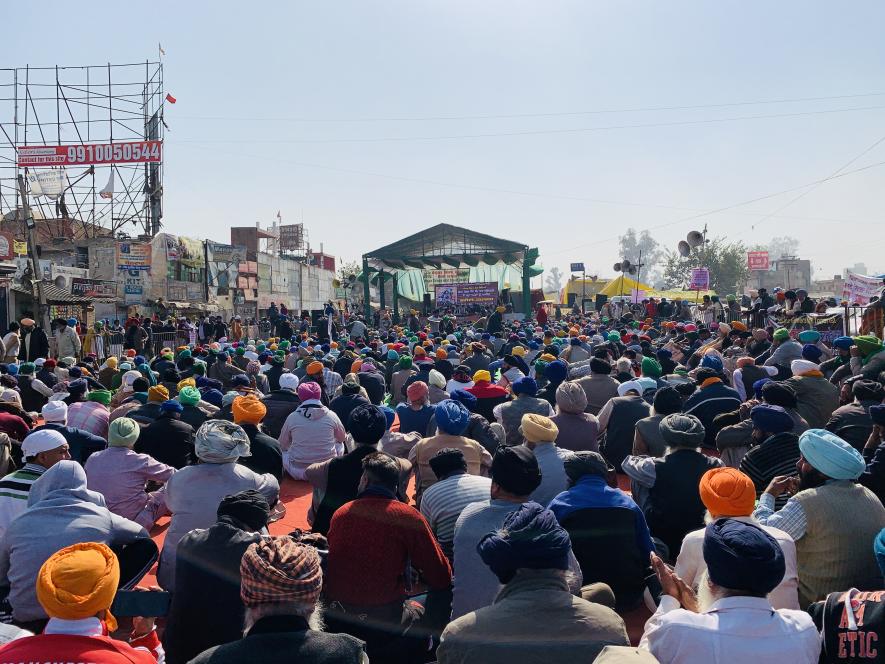
According to Singh, milk trade is going to become only a burden for dairy farmers, with the government of India allowing foreign direct investment in fisheries and animal husbandry which means big business will enter the market putting them at peril. “Some countries give subsidies worth $1 per litre on milk to their companies. Can we survive such stiff competition. Certainly not!,” he said.
Also read: Farmers’ Protest: What Farmers Who Have Done Contract Farming Say About the Law
Just like Singh and Dhillon, Hari Nathuni Singh, a farmer from Uttar Pradesh, is camping at the protest at Ghazipur Border. Talking about his experience of dairy farming, Nathuni told NewsClick, “Yogi (Adityanath) kept passing laws for cows and its calves. Did he ever ask farmers about stray cows? It is us who have been suffering the worst from their menace. We had some scope with milk selling but that is gone now (with the new agri laws). I had two daughters and for their marriages, I sold 4 acres of farming land. I did not sell the rest 6 acres because my father had worked very hard to clear the jungle. How could I sell his legacy!”
D P Singh, All India Kisan Sabha leader from Bulandshahar, told NewsClick that the state government’s recent decisions will make it impossible to tend to any cattle now. Highlighting a few of such policies, he said, “The UP Pradesh Government is now checking every home if they have more than two cattle. The households will have to take commercial electricity connection for it. Electricity is already costly. Who will pay for private connections? Second, the households with nine or more cattle are being driven out of villages by state pollution control board to set up dairies outside residential areas. I met a farmer who was told to set up his diary 24 km away from home. So, the assault is not only on agriculture but on all mediums.”
Manish Bharati, spokesperson of the Adarsh Pashupalak Society, also argued that subsequent government policies have killed the prospects of healthy domestic dairy farming industry. “The dairy farmers have been braving illegal as well as legal issues. Any industry will only survive if there are no law and order issues. The reign of terror by cow vigilantes is such that the cow which is producing 20 litres is selling for Rs 30,000 whereas the same cow would be sold for Rs 60,000 in 2017,” he said.
He went on to add, “Another big jolt came in form of input costs – be it fodder, diesel or medicines. If we take government estimates, it takes Rs 30-32 to produce one litre milk whereas the government corporations like Parag in Uttar Pradesh have been paying Rs 24-28 per litre to us.”
Also read: With Prices Falling, Milk Producing Farmers to Intensify Protests in Maharashtra
However, the biggest worry is the recommendation of Food Safety and Standards Authority of India (FSSAI) which has suggested the sale of milk rich with Vitamin A. Children have been found to be consistently suffering from the deficiency of this particular vitamins, Bharati said, adding, “The same authorities had once recommended the sale of fat free milk.”
Vitamin A is naturally found in the fat of milk. “Thus,” he said, “this effectively means that the sale of fortified milk will be promoted. The technology used in fortification of milk has been the hallmark of foreign multinationals and Indian companies like Amul or Mother Dairy will hardly stand any chance against them. The worst burden would be borne by the government and semi government subsidiaries who are already laden with debt. They will simply collapse.”
Bharati also highlighted that the government’s promotion of mix breed cows as non-Indian has led to their milk being rejected. He said, “Instead, the farmers are being told to tend those species who hardly produce 5 litres of milk. If I collate all these policies, the small farmers will be sacrificed at guillotine of big corporations.”
Get the latest reports & analysis with people's perspective on Protests, movements & deep analytical videos, discussions of the current affairs in your Telegram app. Subscribe to NewsClick's Telegram channel & get Real-Time updates on stories, as they get published on our website.












